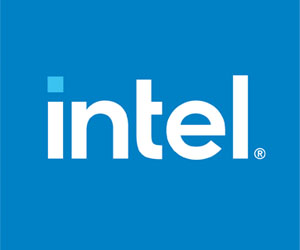Nearly two-thirds (64%) of higher education faculty members feel AI will bring significant, transformative change to instructors’ roles, according to a global Digital Education Council survey.
AI-enabled hardware could be a critical part of the process. AI PCs — computers that contain elements such as Intel Core Ultra processors with performance-enhancing central, graphics and neural processing units — provide advanced capabilities that can help educators create content, solve problems and execute other tasks.
EdTech: Focus on Higher Education recently spoke to Cigdem Ertem, general manager for commercial and educational clientele at Intel, and Larry Rother, Intel’s global director of commercial public sector segment, about the benefits AI-equipped devices could offer universities.
EDTECH: What type of devices are available to support the use of AI-driven solutions in higher education?
ROTHER: We're seeing higher ed enable more personalized learning for students as they leverage technology like Microsoft Copilot generative AI tools along with other accessibility and productivity tools. We're also seeing instructors leverage tools to be more efficient, automating things like searches, feedback or assessments for students.
DIG DEEPER: Intel AI solutions help higher education keep up with an evolving landscape.
We work with software companies to optimize their solutions. Our current generation of Intel Core Ultra V series processors are Copilot-enabled. Because of this new architecture, where we have compute, graphics and neural processing units as part of that on-device AI, these devices are getting outstanding performance — blazing-fast compute and over 20 hours of battery life.
EDTECH: What infrastructure components should schools have in place in order to use AI for real-time analytics, personalized instruction and data-informed interventions?
ERTEM: Part of it is the infrastructure in the on-premises devices or the cloud infrastructure; they need to have a secure network to be able to do that, and an end-to-end infrastructure.
Not all AI is processed in the cloud. Part can also be done much faster and cheaper with smaller language models for real-time analytics in the device a teacher or student is using.
Currently, one of the problems when you are doing research with normal AI tools is some people don’t know you are sending your data to a general-training large language model to ask questions.
With NPU and GPU capacity, in addition to CPU, you can use your own data in the device and make queries without touching the cloud.
ROTHER: Before any university starts talking about what they need to do to support AI, they really need to audit their IT infrastructure. What does that look like? What are the capabilities of resources both in the cloud and for local compute? What types of AI workloads can we move to the edge?
Talk through data governance and AI policies in general. Do the folks who need the right access to data have it to power AI? How do we want to leverage new technologies to power future AI use cases in the modern higher education environment?
Click the banner below to learn more about why data management is essential to AI success.
EDTECH: How can AI device-related security features help universities protect sensitive data, ensure compliance and support cyber resilience?
ROTHER: Universities are looking for the most secure endpoints for professors, academic labs and administrative staff. With Intel vPro platforms, we’ve successfully built in our most advanced security features.
We embed these features at the silicon level and help our OS partners, like Microsoft, and our software partners — CrowdStrike, Microsoft Defender and McAfee — leverage hardware-based technologies to provide the most optimal and efficient security posture on the device.
Internally, post-launch, we are continuing to test platforms to ensure we patch and find our own vulnerabilities. We know there's a lot of student data on both student and professor devices, and we want to keep that safe. Intel is proud to be ranked No. 1 versus key competitors for product security assurance.
EDTECH: How can Xeon processors help provide secure, scalable campus data centers that will reinforce AI workloads, learning management systems and digital services?
ERTEM: Intel Xeon processors have an AMX feature, which basically brings faster AI inference and speeds up AI-related tasks.
You can run many AI inference jobs. Xeon supports enhanced memory bandwidth; this helps with tasks like tokenization, complex vector operations, preparing the data, ensuring everything runs smoothly and quickly.
Xeon 6 is equipped with Intel Software Guard Extensions, which create secure in-cloud capabilities for processing sensitive data. Additionally, Intel Trust Domain Extensions provide confidential computing capabilities — an extra layer of security to protect your data.
EDTECH: How are Intel AI accelerators and software frameworks powering high-performance computing for curriculum, research and admin workflows at colleges and universities?
ROTHER: Intel's oneAPI framework is an open and unified programming model, designed to simplify development across diverse architectures.
Leveraging oneAPI helps in developing simulations, data analysis, deep learning across all kinds of disciplines in the STEM field, like physics, biology and engineering.
From an administrative standpoint, it supports the development of workflows around data processing, predictive modeling and, where we can, automation of university operations.
We have optimized libraries for AI and machine learning use cases and developer tools, and it's all open source, which allows universities to customize them to their specific needs.
Brought to you by














